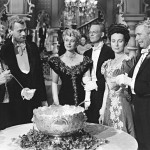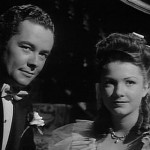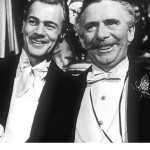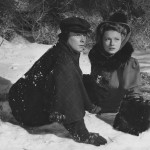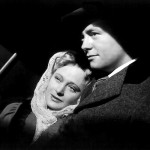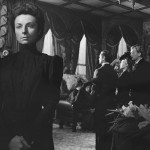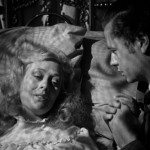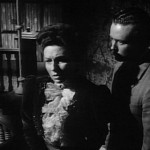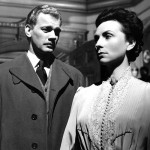
The Magnificent Ambersons – 1942
I have a lot to say about this film which was directed by Orson Wells, some of it good, but most of it bad. I had a difficult time enjoying it. The biggest problem was that I didn’t like any of the characters. It was about a family in the final days of the horse-drawn carriage that was so wealthy that they felt entitled to be mean to everyone, even those they professed to love.
It was based on Booth Tarkington’s Pulitzer prize-winning novel of the same name. Directed by Orson Wells, who we remember from his cinematic triumph Citizen Kane from 1940, the Magnificent Ambersons was a dark and depressing film. Some of his stylistic choices seemed to be an attempt to be too deep and dramatic. The result was a movie that took itself way too seriously. There was no joy in it at all. For example, he would cut off scenes too quickly, making the scene changes abrupt and jarring. He made a lot of the lighting very dim and sometimes downright dark. He made use of heavy shadows which sometimes made characters difficult to see clearly. He used camera angles that looked up at the actors, as if we, the viewers were small and insignificant to them.
The cast was headed by Tim Holt, playing the part of George Minafer-Amberson. Because he was raised by a mother who spoiled him and a father who never disciplined him, he learned that there were never any consequences for his actions. He had no regard for anyone, least of all his own family. He thoughtlessly said whatever his selfish whims dictated and couldn’t understand why his words hurt anyone’s feelings.
His mother, Isabel, played by Dolores Costello, was selfish, weak-willed, and all but oblivious to the world around her. Living in the Amberson mansion along with them, even after the death of George’s father, was Aunt Fanny, played by Agnes Moorhead. She was prone to manic fits of the “poor me” syndrome, a true agony aunt. Also living in the mansion was Uncle Jack, played by Ray Collins. He was sort of a grumpy old codger who didn’t have much of a personality at all.
You begin to get the picture. I didn’t like any of the characters and so had a hard time identifying with any of them. George would say things that would insult people right to their faces, and what made it worse was the fact that nobody ever really called him on it. They even made a point of saying “It’s OK. It’s not his fault he is so mean. It was the way he was raised, after all.”
But there was a slight breath of fresh air in the beautiful face and pleasant personality of the girl George fell in love with. She was Lucy Morgan, played by Anne Baxter. At first, she was fascinated with the carefree young aristocrat, but eventually, she realized just how much of a jerk he was. When he tried to make her feel bad by saying that he was going away and would probably never see her again, her response was wonderful. She casually and cheerfully said, “OK, have a nice life.” Good for her.
As the Amberson’s wealth dwindled, Lucy’s father Eugene Morgan, played by Joseph Cotton, an inventor, and Isabel’s love interest, became wealthy, developing an automobile business. The film tried to examine the social implications of the rise of industry, but I think it missed the mark. It just made the point that George didn’t like cars or the people who were in favor of them. But even that concept was overshadowed by the fact that the main proponent of automobiles was the man who was replacing his dead father in his mother’s affections. It just made the intended social commentary turn into George being childish and angry because Mommy loved Daddy and should never love anyone else.
It is interesting to note that Wells tried to drastically change the ending from the source material, making it darker and more depressing. However RKO Studios sent Wells out of the country to work on another film and while he was gone, they re-shot and changed the end back to the happier ending that was in the novel. The Amberson’s money is all gone and George is forced to get a job to care for Aunt Fanny. He is hit by a car and breaks both his legs. He apologizes to Eugene for destroying his relationship with Isabel, thus implying that he is now a good person. No! Wrong! A lifetime of being a jerk is not wiped away by one apology, given only because his legs have been broken. Bad author!! Wells’ ending was probably better.
